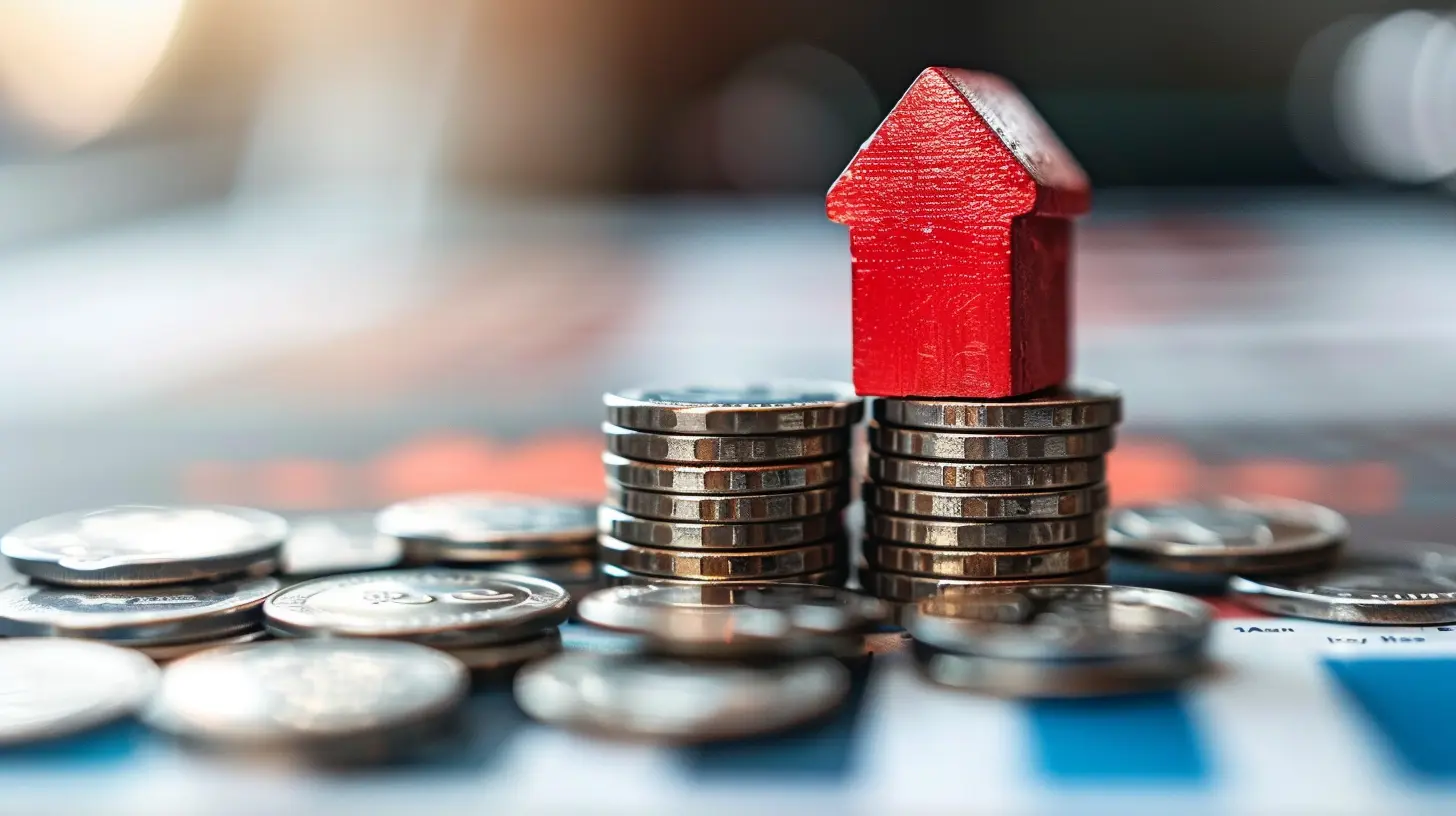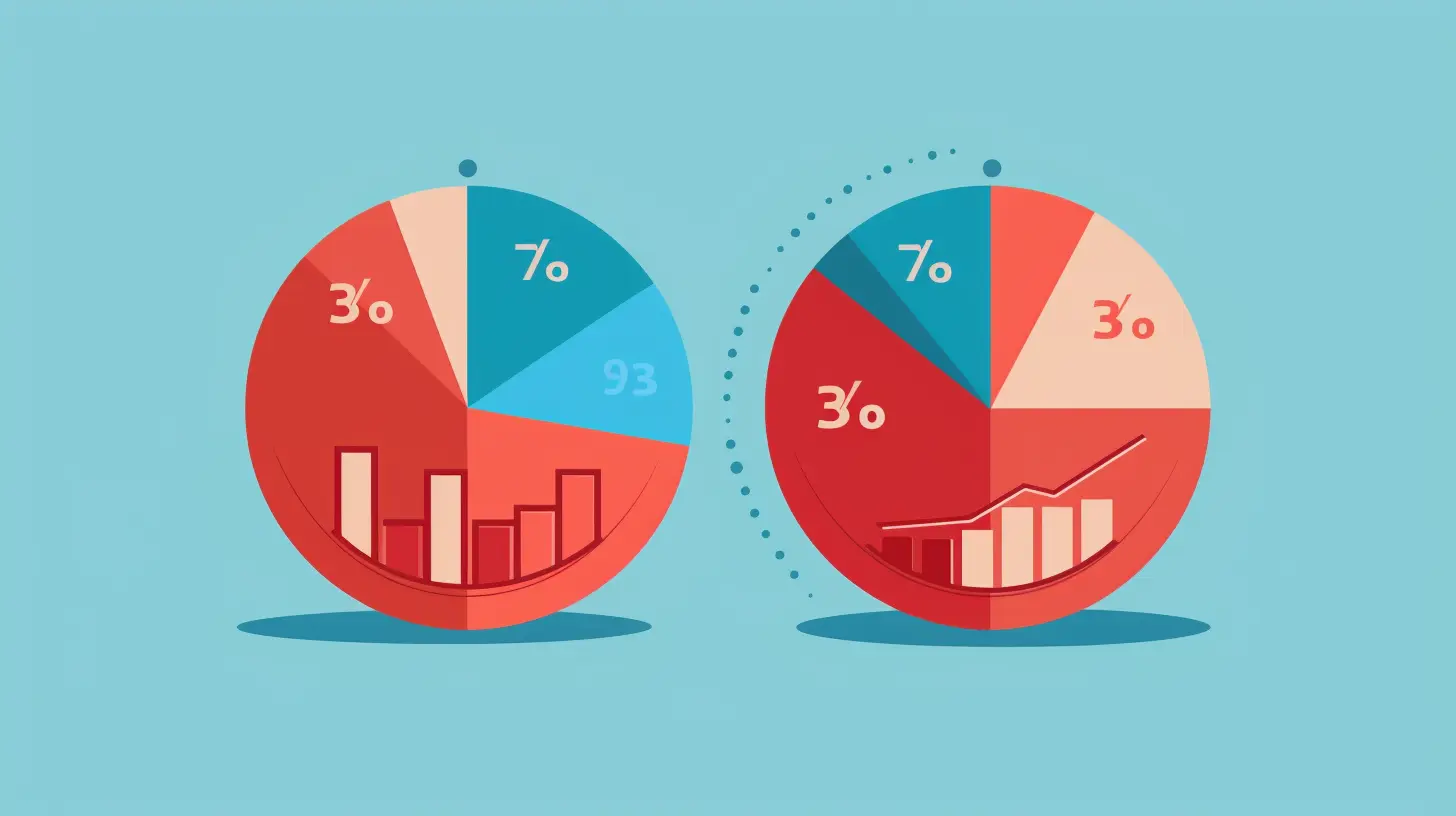Variable Rates vs. Fixed Rates: Which is Best for Your Loan?
3 July 2025
When it comes to loans, one little decision can have a huge impact on your wallet over time: the choice between variable rates and fixed rates. Sounds simple on the surface, right? But there’s a lot more under the hood than you might expect.
Whether you’re taking out a mortgage, student loan, personal loan, or even refinancing debt, picking between a variable and a fixed interest rate is a serious fork in the road. And just like choosing between a Prius and a pickup truck, what works best totally depends on your lifestyle, goals, and how much risk you’re willing to take.
So, let’s buckle up, roll down the windows, and cruise through everything you need to know to make the best decision for your future bank account.
What Are Fixed and Variable Rates Anyway?
Before we dive deep into the decision-making process, let’s make sure we’re on the same page with these two terms.Fixed Rate Loans: Predictable and Steady
With a fixed-rate loan, your interest rate never changes. Ever. Rain or shine, good economy or bad economy – your loan interest stays exactly the same from Day 1 to the very last payment.Think of it like signing up for a streaming service at a flat rate for life—even if the monthly fees go up for everyone else, you keep paying the same price. That kind of consistency is comforting, especially when budgeting.
Variable Rate Loans: Flexible and Risky
On the flip side, a variable-rate loan (sometimes called a floating rate) means your interest rate can change over time, usually in sync with some kind of financial index or benchmark rate (like the Federal Reserve rate or LIBOR).So when interest rates drop, your rate goes down (awesome, right?). But if they shoot up, well, you guessed it—your rate (and payment) goes up too. It’s kind of like riding a roller coaster: thrilling when it's going down, stomach-turning when it's climbing.
The Pros and Cons: Fixed vs Variable
Let’s break it down, side-by-side, so you can weigh what's right for you.✅ Pros of Fixed Rates
- Predictability: Your monthly payment is always the same. That means easier budgeting.- Protection from Rate Hikes: If interest rates soar in the future, you’re safely locked in.
- Great for Long-Term Loans: If you’re in it for the long haul (like a 30-year mortgage), fixed rates offer peace of mind.
❌ Cons of Fixed Rates
- Usually Higher Initial Rate: You’re paying a premium for that stability upfront.- Limited Flexibility: You won’t benefit if rates drop—you’re stuck with the same number.
✅ Pros of Variable Rates
- Lower Starting Rate: Variable rates often begin lower than fixed—nice if you're looking to save in the short term.- Chance to Pay Less Over Time: If market rates fall, so might your payments.
- Short-Term Advantages: Ideal for loans you plan to pay off quickly.
❌ Cons of Variable Rates
- Unpredictability: Your monthly payments could climb. A lot.- Budgeting Challenges: Harder to predict expenses over the life of the loan.
- Financial Stress: Anxiety kicks in when you’re not sure what your payment’s going to be next year (or next month).

When Should You Choose a Fixed Rate?
Great question—and this is where your personal situation starts to matter.Go with a fixed rate if you:
- Plan to stay in your home or keep the loan long-term.
- Like budgeting with certainty.
- Expect interest rates to rise in the future.
- Don’t want to gamble with your financial stability.
- Are buying in an unpredictable economy.
If you're someone who sleeps better knowing exactly what your payment will be, month after month, then a fixed-rate loan might be your best friend.
When Should You Choose a Variable Rate?
On the flip side, variable rates could be golden if you:- Expect to pay off the loan quickly.
- Believe interest rates will stay low or even drop.
- Are comfortable with some level of financial risk.
- Want to lower your payments in the short term.
- Have flexible income that can absorb fluctuations.
Let’s say you’re planning to flip a house in 3 years or refinance in 5—why lock into a higher fixed rate if you’re not going to be around long enough to benefit?
Real-World Scenarios: What Works Best?
Still unsure? Let’s run through a few realistic examples to see how this all plays out in daily life.🏠 Buying a Home to Live in Long-Term
Go fixed. You want stability, especially if you’re planning to live there for 10+ years. Your housing payment is probably your biggest bill, so it's comforting to know it won’t change.🏡 Buying Rental Property
Variable might work. If you plan to sell in a few years—or can raise rent to keep up with higher interest payments—it could save you some cash up front.🎓 Student Loans
Federal student loans usually come with fixed rates. Private student loans, however, offer both. If you’re expecting higher income soon, or you’ll pay off your loan quickly, variable might give you the edge.🚗 Auto Loans
Generally short-term, so variable might sound attractive. But most people go fixed because car loans are easier to budget with a steady payment.💳 Credit Cards and Lines of Credit
Most are variable anyway—and they can change fast. Always read the fine print and watch out for rate hikes.Market Trends: What's Happening Now (in 2024)?
As of mid-2024, interest rates have been dancing all over the place following global economic changes and inflation pressures. The Federal Reserve has hinted at stabilizing rates, but there’s still a lot of uncertainty.So—if you’re locking in a loan today, it’s worth considering:
- Are you financially stable enough to absorb possible rate hikes (variable)?
- Would you feel better being locked into today’s rate, even if it’s a bit higher (fixed)?
Knowing your risk tolerance is everything.
Things to Ask Before You Decide
Here’s a mini checklist to help you figure out which loan type fits your style:1. How long will I keep this loan?
2. What’s the current interest rate trend?
3. Can I afford higher payments if rates rise?
4. How stable is my income and job situation?
5. Am I planning any big life changes soon?
6. Do I want to refinance later on?
Be honest with yourself—your answers will point you in the right direction.
Pro Tip: Read the Fine Print on Variable Loans
Not all variable-rate loans behave the same. Some have:- Rate caps: Limits how much your interest can increase over time.
- Adjustment frequency: How often the rate can change (monthly, annually).
- Initial fixed period: Some start with a fixed rate for a few years before switching to variable. These are called hybrid loans (like 5/1 ARMs in mortgages).
Ask your lender for these details. They matter—a lot.
The Bottom Line: What’s Actually “Best”?
Honestly? There’s no one-size-fits-all answer.The best loan rate for YOU depends on:
- Your financial goals
- Your lifestyle
- Your income
- Your tolerance for uncertainty
If you hate surprises and want reliable expenses for years to come, go fixed. But if you're okay with some calculated risk and want to save money upfront, variable could be the smarter play.
Whatever you choose, make sure it aligns with your game plan—because this isn’t just about dollars and cents. It’s about peace of mind, too.
Final Thoughts
Choosing between variable and fixed rates isn’t just a math problem—it’s a personal decision. You’re not just balancing numbers; you’re balancing your comfort level, your goals, and your ability to navigate change.So, take your time, ask questions, crunch the numbers, and don’t be afraid to talk to a financial pro if you need to. This is YOUR loan, YOUR money, and YOUR future.
Make the choice that gives you confidence—not just today, but five, ten, even thirty years down the line.
all images in this post were generated using AI tools
Category:
Interest RatesAuthor:

Zavier Larsen
Discussion
rate this article
2 comments
Tyler Gutierrez
Fixed rates offer stability; variable rates gamble with risk.
November 15, 2025 at 12:54 PM

Zavier Larsen
While fixed rates provide predictability, variable rates can lead to lower payments in a declining interest environment. The choice depends on your risk tolerance and financial situation.
Megan Rodriguez
Choose wisely, peace follows.
July 13, 2025 at 2:23 AM

Zavier Larsen
Thank you! Choosing the right loan type is crucial for long-term peace of mind.


